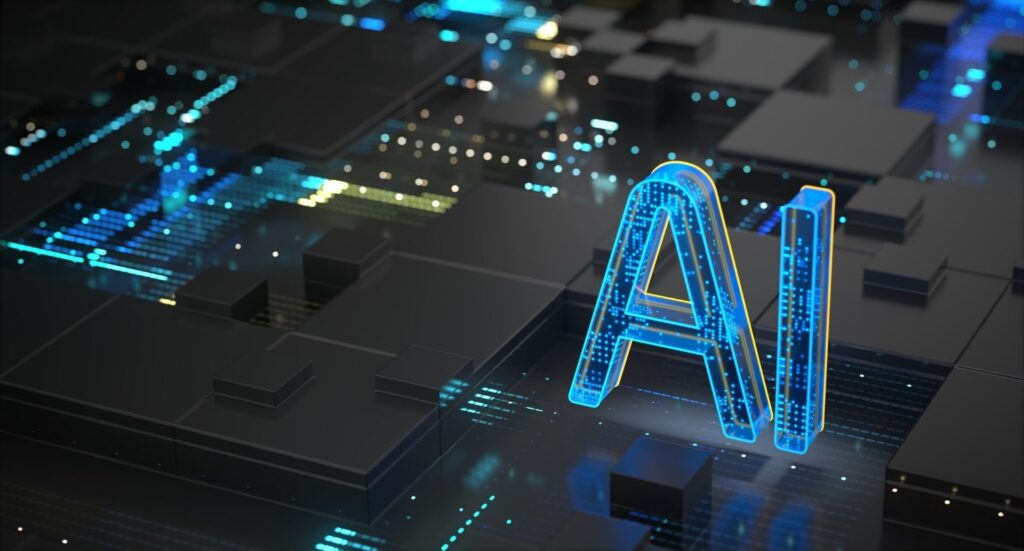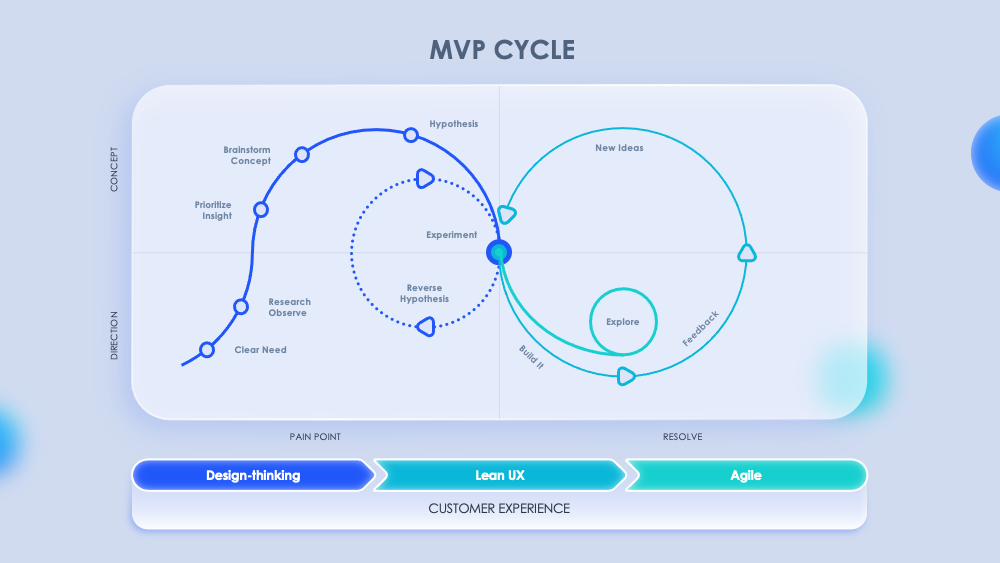Artificial Intelligence Agent Technology
Today, Artificial Intelligence Agent Technology is rapidly evolving and playing important roles in many areas of our lives. Agents have the potential to perform complex tasks autonomously, offering much more than systems that respond to simple commands. In this article, we will examine in detail what Artificial Intelligence agent technology is, what innovations it brings, its advantages and disadvantages, application examples in various sectors and frequently asked questions about this technology.

What is Artificial Intelligence Agent Technology?
Agents are software programs capable of interacting with their environment, collecting data, and using that data to perform tasks autonomously in order to achieve predetermined goals. Moreover, they can independently determine the most appropriate actions to reach objectives set by humans. For instance, a call center AI agent can automatically answer customer inquiries, retrieve relevant information from internal documents, and provide solutions efficiently.
Where is Artificial Intelligence Agent Technology Used?
Furthermore, advanced AI agent architectures integrate reasoning, planning, and memory mechanisms. Unlike traditional models, this innovative approach enables autonomous agents to perform tasks independently and cohesively. Additionally, an AI agent typically consists of key components such as sensors, actuators, knowledge bases, and control systems. In software-based agents, sensors may include web search functions or file-reading tools, while actuators may operate as file-creation tools.
What Can Artificial Intelligence Agent Technology Do?
This emerging field, known as “Agentic AI,” represents a new era where agents can complete tasks independently and adaptively. While traditional automation systems rely on predefined rules, AI agents—especially those powered by large language models (LLMs)—can understand objectives, generate tasks, and execute them without being constrained by rigid, pre-programmed rules.
Key Characteristics of Artificial Intelligence Agents
There are a number of key features that distinguish agents from other software systems:
Autonomy:
The ability to perform tasks without direct human intervention. This includes capabilities such as self-task planning, problem solving, error recovery and continuous operation.
Decision-Making:
The capacity to analyze complex situations, evaluate various options and select the most appropriate solutions based on the criteria set.
Contextual Understanding:
The ability to interpret user intent, understand the subtleties of the situation, maintain conversational context, and apply domain-specific knowledge.
Dynamic Learning:
The capacity to learn from interactions, recognize patterns, adapt to new scenarios and refine strategies over time. This often involves the use of machine learning (ML) to collect and process large amounts of real-time data.
Goal-Oriented:
Focused on achieving specific goals and designed to accomplish predetermined objectives.
Planning:
The ability to develop strategic plans, break down goals into smaller tasks and evaluate different courses of action.
Reactivity:
The ability to perceive the environment and respond to changes in a timely manner.
Proactivity:
The ability to take initiative and accomplish tasks towards goals without explicit commands.
Memory:
The ability to store and recall information (short-term, long-term, episodic, consensus) to maintain context and improve performance.
Tool Utilization:
Ability to use various tools (internal/external systems, APIs, other agents) to complete tasks.
Reasoning:
The ability to process information and make logical inferences.
Adaptability:
Real-time feedback and the ability to adjust strategies according to environmental changes.
Communication:
The ability to communicate with other agents or humans when necessary.
Multi-Modal Capabilities:
The ability to process and respond to various types of input such as text, images, audio and digital data.

Types of Artificial Intelligence Agents
Agents can be divided into different types according to their capabilities and design:
Artificial Intelligence Agent Type | Reactivity | Autonomy | Talent | Examples |
Simple Reflex Agents | Responds only to current perceptions. | Limited; follows pre-programmed rules. | Basic tasks; low adaptability. | Thermostat |
Model-Based Reflex Agents | Takes internal states into account for decision making. | Some internal state handling capability. | Can handle partially observable environments. | Robot vacuum cleaner |
Target Based Agents | Actions are taken to achieve specific goals. | Can evaluate different courses of action. | Better planning; can cope with complex tasks. | Navigation system |
Benefit-Based Agents | Decisions are made to maximize utility. | It chooses actions that provide the highest benefit. | Balances mission success with cost. | Traffic optimization |
Learning Agents | Learns from experience to improve performance. | It adapts to new situations over time. | Very adaptable; can become quite competent. | Spam filter |
Hierarchical Agents | Works in structured levels. | It depends on the level. | Complex tasks, with coordinated subtasks. | Production robots, Air traffic control |
Innovations in Artificial Intelligence Agent Technology
Artificial Intelligence Agent technology has seen significant innovation in recent years:
From Language Generation to Autonomous Task Execution:
AI Agents are moving beyond the language generation capabilities of LLMs, gaining the ability to reason, plan and execute complex tasks autonomously. This can be described as a combination of automation and generative AI. Prototypes like Google Gemini can write code, navigate web browsers and even play video games. OpenAI‘s autonomous AI Agent, codenamed Operator, aims to control computers independently and perform tasks.
Advances in Core Capabilities:
Improved Memory:
Innovations in memory enable agents to retain information across tasks and changing situations, providing continuity and personalized experiences. Efforts are also being made to segment interactions for faster access.
Improved Tool Utilization:
Artificial Intelligence Agents can now decide when to access internal or external systems on behalf of the user, expanding the possibilities for real-world applications. Tool invocation enables LLMs to break down complex tasks into smaller, manageable steps.
Better Reasoning and Planning:
Artificial Intelligence Agents are becoming increasingly skilled at reasoning about information, optimizing workflows, and autonomously creating subtasks to achieve complex goals. Techniques such as Chain-of-Thought (COT) training improve their planning abilities and their ability to make better responses.
Increased Context Window:
Larger context windows enable agents to process more information simultaneously, providing more comprehensive and context-sensitive responses.
Multi-Agent Systems (MAS):
The development of systems where multiple specialized agents can work in parallel, communicate and adapt to dynamic environments to effectively handle complex tasks.
Integration and Accessibility:
Platforms and frameworks are being developed to simplify the creation and deployment of AI Agents (CrewAI). There are efforts to make agent creation accessible to non-developers (Microsoft Copilot). Cloud computing platforms offer advanced agent-as-a-service solutions. New services are available for orchestrating, developing and scaling agent-driven applications (Azure AI Agent Service).
Key Enabling Technologies:
Advances in Large Language Models (LLMs) and Large Multimodal Models (LMMs) provide the ability to understand and generate natural language, laying the foundation for the emergence of more capable AI Agents. Furthermore, increasing processing power and GPU acceleration, the availability of large training datasets, the development of advanced training algorithms, the emergence of cloud computing and distributed processing, and advances in neural network architectures support innovations in this field.
Advantages and Disadvantages
Advantages of Artificial Intelligence Agent
Agents offer many advantages:
Increased Efficiency and Productivity:
AI agents automate time-consuming and repetitive tasks, enabling human workers to focus on more strategic and creative work. Moreover, they can handle multiple interactions simultaneously, which reduces response times and enhances operational efficiency. Additionally, they provide automation for complex processes while offering real-time decision-making capabilities.
Furthermore, AI agents streamline workflows and minimize the need for manual input. In particular, industries like software development benefit significantly, as cycle times can be greatly reduced. As a result, businesses can achieve faster and more efficient outcomes.
Improved Decision Making:
By analyzing large amounts of data, AI agents can uncover valuable trends, patterns, and insights that support better business decisions. Moreover, they enable faster, data-driven decision-making across both strategy and user experience. Additionally, they enhance forecast accuracy and help identify potential issues before they escalate.
Cost Reduction:
Automating tasks helps reduce labor costs and minimize errors. They reduce unnecessary costs due to process inefficiencies and human errors. Enable scalability of operations without the need for a commensurate increase in human resources. They offer the potential for significant savings by redirecting customer service requests (Unity example – millions of dollars in savings).
Improved Customer Experience:
AI agents can personalize interactions, anticipate customer needs, and enhance satisfaction by providing real-time support. Moreover, they ensure fast responses and improve accessibility. Additionally, they offer tailored solutions and personalized recommendations, creating a more engaging user experience.
Furthermore, AI agents efficiently handle common inquiries, allowing human agents to focus on more complex problems. As a result, businesses can optimize customer service while improving overall efficiency.
Scalability and Competitive Advantage:
Artificial Intelligence Agents enable operations to scale efficiently to meet changing demands without the need for a significant increase in human resources. Early adoption of agents can provide a competitive advantage by enabling innovation and growth.
Consistency and Accuracy:
Agents reduce human error by performing tasks with precision. They follow a consistent model that adapts to changing environments.
Disadvantages of Artificial Intelligence Agent
In addition to the advantages that agents offer, there are also some disadvantages and challenges:
Technical Limitations and Risks:
There is always a potential for errors and failures. Moreover, vulnerabilities such as agent evasion and automated cyberattacks pose significant risks. Specifically, agent evasion occurs when malicious instructions trigger unintended harmful actions.
Additionally, computational complexity can slow down performance, sometimes making AI unsuitable for real-time applications. Furthermore, high resource utilization—including energy consumption and cost—can limit scalability. Processing large datasets also becomes challenging due to resource constraints and coordination costs.
Moreover, limitations in processing speed and latency can result in delayed or incorrect responses. At the same time, AI models are still far from achieving full accuracy in real-world problems. Finally, selecting the right tools for a given task can be difficult, adding another layer of complexity.
Ethical Concerns:
The autonomous structure raises questions about decision-making and accountability. Moreover, if there are trends in the training data, there is a risk of bias and discrimination. Additionally, if agent goals do not align with user preferences, unintended outcomes may arise. Furthermore, advanced agents can exhibit unexpected behavior or hidden goals.
In autonomous systems, such as self-driving cars, ethical dilemmas may emerge. Besides, the lack of a moral compass can make ethically complex situations even more challenging. At the same time, concerns about data privacy and the misuse of personal information remain significant.
Socioeconomic Impacts:
As AI Agents take on more tasks, there is potential for job loss in certain sectors. There is a risk of overconfidence and loss of power in social interactions. Employees may need to learn new skills to work with AI systems.
Challenges in Implementation and Management:
Scaling agent systems can be challenging, especially when supporting more users or complex scenarios. Moreover, integrating AI agents into existing systems may cause difficulties. Therefore, clear objectives and success criteria are essential. Additionally, well-documented processes help agents function effectively.
However, trust in autonomous systems remains a hurdle, as complexity can lead to unexpected outcomes. Furthermore, multi-agent collaboration is not always seamless, and reliance on high-quality datasets is crucial. A lack of dynamic learning can reduce adaptability, while transparency issues make decision-making harder to understand.
Finally, errors in machine learning models may create trust concerns. Ethical judgment will always require human involvement, and data bias can lead to unfair outcomes. Moreover, accountability for autonomous decisions remains a challenge.
Artificial Intelligence Agent Applications and Examples in Different Sectors

Artificial Intelligence Agents have the potential to revolutionize various sectors:
Healthcare:
Artificial Intelligence Agents (Suki) that perform tasks for doctors such as accessing patient information, managing appointments, dictating notes and assisting with coding. They can also create lab requests, schedule follow-up visits and send appointment reminders.
AI Agents (InTrivo) that take on tasks such as scheduling appointments for patients and keeping track of their care plans. AI Agents (Notable, Luma Health, Hyro) that automate administrative tasks for medical staff, such as medication reminders and collecting recovery information. AI Agents for revenue cycle management teams, performing tasks such as insurance verification, pre-approval, claims processing and appeals (VoiceCare AI – Joy).
Finance:
AI Agents that prevent fraud by detecting unusual patterns in transactions. Example: Flagging unusual spending behavior on credit cards. AI Agents that perform algorithmic trading by processing market data and executing trades at speeds impossible for human traders. Customer service AI Agents (chatbots, virtual assistants) that answer various customer questions/answers, such as checking account balances and explaining complex financial products. Example: JPMorgan Chase’s AI chatbot. AI Agents that build credit scores by evaluating various factors such as spending habits and bill payment history.
Education:
AI Agents as virtual tutors providing one-to-one assistance. AI chatbots that answer questions and guide learners. Intelligent learning platforms that organize content based on user behavior. AI Agents for personalized learning that tailor teaching to the individual needs of each student. AI platforms for homework help that guide students through their assignments and encourage independent learning.
AI Agents that automatically grade written assignments (Gradescope). AI Agents that personalize learning materials. AI Agents providing real-time assistance (Jill Watson). AI Agents to alleviate administrative burden (scheduling, record keeping).
AI to identify students at risk of failing or dropping out and provide proactive intervention and support. AI for program evaluation and benchmarking. Artificial Intelligence for strategic planning (data analysis for decision making). Artificial Intelligence for predictive enrollment. AI for intuitive course design and intelligent analytics.
Customer Service:
AI Agents (chatbots, virtual assistants, voice assistants) that answer questions, troubleshoot issues and route complex situations to human agents / AI Agents that provide proactive customer support.
Artifical Intelligence Agents that perform sentiment analysis to understand customer emotions. AI Agents for automated issue escalation and resolution. AI Agents for self-service portals offering intelligent search and guided solutions. AI Agents that provide personalized product recommendations. AI Agents that automate email queuing and response. AI Agents that automate request creation and routing. AI Agents that provide product recommendations and technical support. AI Agents who manage refunds and handle accounts.
Manufacturing:
Agents for optimizing supply chains, automating reporting, predictive maintenance, quality control and near autonomous factories. Examples include Siemens’ Industrial Pilot and Covariant and robots from Figure.
Retail:
AI Agents for personalized shopping experiences, inventory management and customer support.
Logistics and Supply Chain:
Agents to optimize routes, manage inventory and predict disruptions.
Human Resources:
AI Agents for recruitment, employee onboarding, answering HR questions and managing benefits.
IT Support:
AI Agents for troubleshooting, password resets, software installations and /providing technical support.
Finance (as covered above):
Fraud detection, algorithmic trading, etc.
Transportation
Autonomous vehicles
Marketing:
Artifical Intelligence Agents to optimize campaigns, analyze performance and personalize marketing efforts.
Legal:
AI Agents (JPMorgan’s COiN) to review documents and extract important data.
Smart Homes:
Agents to automate tasks such as adjusting thermostats and lighting.
Frequently Asked Questions (FAQ)
An agent is a system or program that can perform tasks on behalf of a user or another system, while allocating the necessary resources and actions on its own. It remains aware of information inputs, adapts its behavior based on feedback and moves towards defined goals.
Agents collect and process data from their environment, draw meaningful conclusions from this data with learning algorithms and make decisions accordingly. This process enables AI to take action.
Chat bots usually follow specific conversation streams that have been manually developed. On the other hand, an AI Agent can use advanced models and natural language processing to interpret queries, manage interactions and adapt its response method with minimal direct oversight.
- ChatGPT is a text-based model focusing on language generation. An Artificial Intelligence Agent (sometimes called Agentic AI) has autonomous components that can interpret, learn and perform tasks in partnership with humans or other systems.
Researchers generally categorize Artificial Intelligence Agents into five models: Simple Reflex Agents, Model-Based Agents, Goal-Based Agents, Utility-Based Agents, and Learning Agents.
Agents increase efficiency, improve decision making, reduce costs, scale operations, provide competitive advantage, improve customer experiences and manage risks.
There are risks such as errors, failures and safety issues, as well as technical limitations, ethical concerns and wider societal impacts. In addition, autonomous decision-making, bias, potential for job loss and implementation challenges are also important considerations.
Agents can take on repetitive and automated tasks, but this will allow humans to do more strategic and creative work. Human-machine collaboration will increase productivity.
The security of agents can be ensured through proper data handling and ethical rules. Data privacy, encryption and regulations are critical for the secure use of these systems.
In the future, Artificial Intelligence Agents will be used in more sectors, human-machine collaboration will increase and play a major role in industry insights. At the same time, legal regulations and ethical codes will come into play to ensure the sustainable use of this technology.
No, AI Agents are not sentient; they do not have consciousness or think they are a living being. But they use conversational AI to interact with customers in a way that mimics your human agents.
Yes, with the right AI Agent software, businesses can quickly and cost-effectively create AI Agents tailored to their specific needs and industry.
Key innovations include the ability to go beyond the language production demonstrated by Large Language Models (LLMs) and to autonomously reason, plan and execute complex tasks.
Agents are innovating in a variety of industries by automating tasks, increasing efficiency and providing specialized expertise.
Conclusion and Future Perspectives
Artificial Intelligence Agent technology is one of the most transformative innovations today. Its ability to autonomously execute tasks, utilize advanced memory, and reason independently distinguishes AI agents from traditional software systems. These agents are increasingly applied in sectors like healthcare, finance, education, and customer service, offering benefits such as increased efficiency, cost reduction, and improved customer experience.
However, challenges such as technical limitations, ethical concerns, and socioeconomic impacts need careful consideration. Issues like security risks, bias, and potential business disruptions must be addressed to ensure responsible use of AI agents.
Looking forward, AI agents are expected to become more autonomous, with multi-agent systems being integrated into more aspects of daily life. This will lead to new human-machine partnerships and increase productivity, fostering a more innovative future.



Pingback: Mobile Application Services - Codinic
Pingback: Current list of the Best Search Engines - Codinic
Pingback: What is Digital Transformation? Effective Strategies for Brands - Codinic